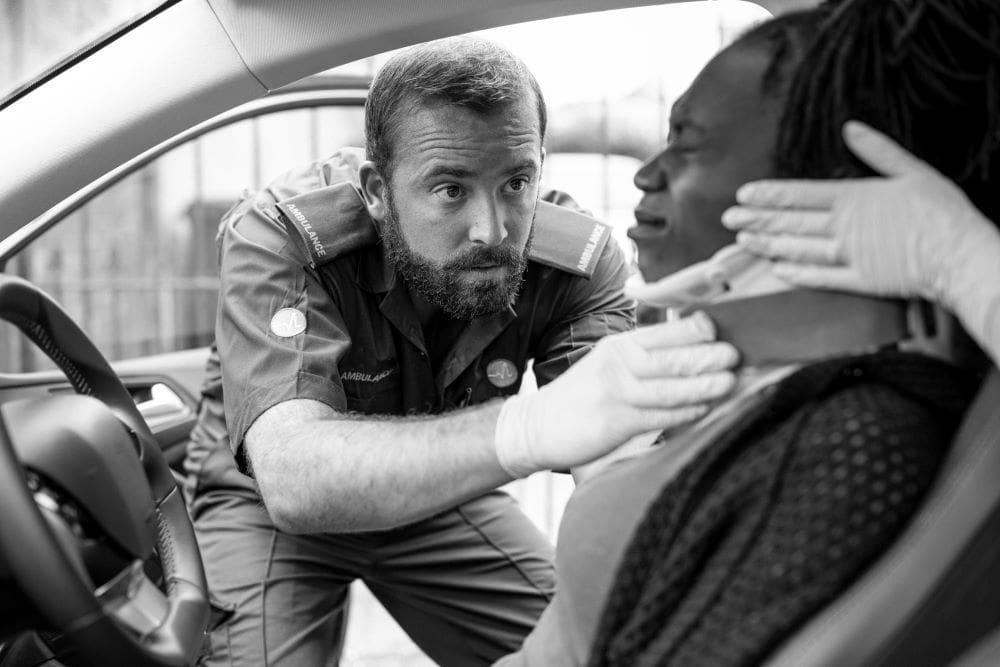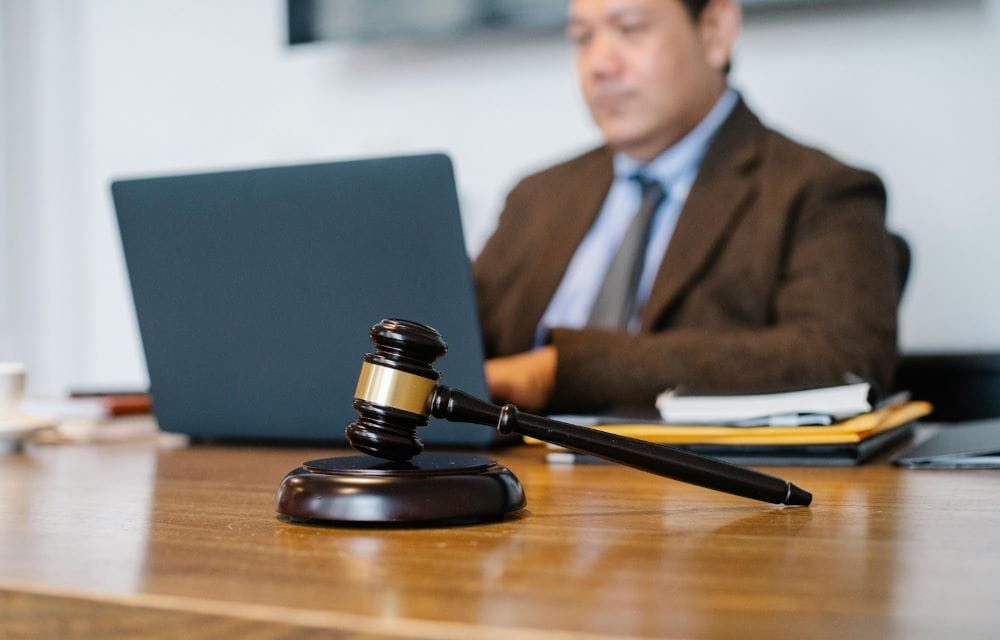
Car accidents are often sudden and unexpected, leaving victims with a wide range of injuries. One of the lesser-known but potentially debilitating injuries is spinal stenosis. If you’ve been in a car accident and now suffer from spinal stenosis, you might be wondering what your options are, particularly in terms of settlement.
In this comprehensive guide, we’ll explore everything you need to know about spinal stenosis car accident settlements, from how spinal stenosis occurs after a car accident to the factors that determine the value of your settlement.
Understanding Spinal Stenosis After a Car Accident
Spinal stenosis occurs when the spinal canal or spinal column, the passageway for the spinal cord, narrows. This narrowing can put pressure on the spinal cord and the nerves that travel through the spine, leading to pain, numbness, and weakness.
After a car accident, spinal stenosis can develop due to several reasons:
Trauma: The impact of a car accident can cause trauma to the spine, leading to inflammation and the development of spinal stenosis.
Herniated Discs: In some cases, the force of a car accident can cause the discs between the vertebrae to herniate, putting pressure on the spinal cord and leading to stenosis.
Pre-existing Conditions: If you already had spinal stenosis before the accident, the trauma from the collision could exacerbate the condition.
Recognizing the Symptoms of Spinal Stenosis
It’s essential to recognize the symptoms of spinal stenosis, especially after a car accident, as they can develop gradually over time. Symptoms may include:
Numbness or tingling: Particularly in the legs or feet.
Weakness: Difficulty walking or lifting objects.
Pain: Usually in the lower back or neck, which may radiate down the arms or legs.
Difficulty with balance: Feeling unsteady on your feet.
If you experience any of these symptoms after a car accident, it’s crucial to seek medical attention promptly.
Treating Spinal Stenosis After a Car Accident
Treatment for spinal stenosis often depends on the severity of the condition and the symptoms experienced. Common treatments include:
Physical Therapy: Exercises to strengthen the muscles supporting the spine and improve flexibility.
Medications: Pain relievers, muscle relaxants, and anti-inflammatories to manage symptoms.
Steroid Injections: To reduce inflammation and alleviate pain.
Chiropractic Care: Manipulative therapy to improve spinal alignment and reduce pressure on nerves.
Surgery: In severe cases where other treatments fail to provide relief, surgery may be necessary to decompress the spinal cord.
Understanding the Average Settlement for Spinal Stenosis
Determining an average settlement for spinal stenosis can be challenging due to the wide variability in settlement amounts. This variability is influenced by factors such as the severity and consequences of the injury.
The confidential nature of settlement agreements further complicates efforts to gather sufficient data to calculate a definitive average settlement amount for spinal stenosis cases.
Sample Settlement Amounts for Spinal Stenosis
Mild Case with Minimal Impact: Settlements range from $10,000 to $30,000 for cases where spinal stenosis causes mild symptoms and minimal impact on the individual’s life. Covers medical expenses, pain, suffering, and lost wages.
Moderate to Severe Cases: Settlements range from $50,000 to $200,000 or more for cases with moderate to severe symptoms, including chronic pain and mobility issues. It reflects higher medical expenses, long-term treatment, and a significant impact on quality of life.
Cases with Permanent Disability: Settlements range from $250,000 to several million dollars for cases resulting in permanent disability like paralysis. Amounts depend on the extent of disability, future medical expenses, age, and earning capacity of the individual.
Factors That Contribute to Your Settlement’s Value
Several factors can influence the value of your spinal stenosis settlement, including:
Severity of Injuries: The more severe your spinal stenosis and its symptoms, the higher your settlement is likely to be.
Medical Treatment: The cost of medical treatment, including surgeries, medications, and therapy.
Impact on Daily Life: If your spinal cord injuries have affected your ability to work, enjoy life, or engage in daily activities.
Pre-existing Conditions: Whether you had pre-existing spinal stenosis or other injuries that were exacerbated by the accident.
Insurance Policies: The limits of the at-fault driver’s insurance policy and any additional coverage you may have, such as personal injury protection (PIP) or underinsured motorist coverage.
What Determines the Value of My Spinal Stenosis Settlement?
Determining the value of your spinal stenosis settlement requires a thorough evaluation of your case by an experienced personal injury attorney. Factors that will be considered include:
Medical Records: Documentation of your injuries, treatments, and prognosis.
Lost Wages: Evidence of income lost due to the accident and your injuries.
Expert Testimony: Testimony from medical experts to support your claim.
Negligence: Evidence that the other driver was at fault for the accident.
Pain and Suffering: Compensation for the physical and emotional toll of your injuries.
Future Medical Expenses: Estimates of future medical costs related to your spinal stenosis.
The Settlement Process for Spinal Stenosis Car Accident Cases
The settlement process for spinal stenosis car accident cases typically involves the following steps:
Initial Consultation: Meeting with a personal injury attorney for a free case evaluation to discuss your options.
Investigation: Gathering evidence, such as medical records, police reports, and witness statements, to support your claim.
Demand Letter: Sending a demand letter to the at-fault party’s insurance company outlining your injuries and the compensation you are seeking.
Negotiation: Negotiating with the insurance company to reach a fair settlement.
Settlement: If an agreement is reached, you will receive compensation for your injuries. If not, you may need to pursue litigation through a personal injury lawsuit.
How Long Do Spinal Stenosis Car Accident Settlements Take?
The length of time it takes to reach a settlement for spinal stenosis after a car accident can vary depending on several factors, including:
Severity of Injuries: Complex cases involving severe injuries may take longer to settle.
Medical Treatment: Cases that require ongoing medical treatment or surgery may take longer to resolve.
Insurance Company: Some insurance companies may delay or deny claims, prolonging the settlement process.
Negotiation: The time it takes to negotiate a fair settlement with the insurance company.
Litigation: If a settlement cannot be reached, litigation through a personal injury lawsuit can significantly lengthen the process.
In general, spinal stenosis settlements can take anywhere from a few months to several years to resolve. It’s essential to be patient and work closely with your attorney throughout the process.
Why You Need a Lawyer for a Spinal Stenosis Car Accident Settlement
Being involved in a car accident that results in spinal stenosis can be a life-altering experience. From managing your medical treatment to dealing with insurance companies, the aftermath of such an incident can be overwhelming. In these challenging times, having a skilled personal injury lawyer by your side can make all the difference.
Here’s why you need a lawyer for a spinal stenosis car accident settlement:
Legal Expertise: Personal injury law is complex, and having a lawyer who specializes in spinal stenosis car accident cases ensures your case is handled competently.
Knowledge of the Law: State laws vary, and a Nevada-based lawyer will ensure your rights are protected according to local regulations.
Investigation: Lawyers will gather evidence, interview witnesses, and build a strong case to support your claim.
Medical Understanding: Lawyers work with medical experts to assess injuries, ensuring proper treatment and presenting medical evidence effectively.
Negotiation Skills: Lawyers negotiate with insurance adjusters to maximize your settlement and prevent unfair offers.
Maximizing Compensation: Lawyers fight for your rights, considering factors like medical bills, lost wages, and pain and suffering to maximize your compensation.
Handling Legal Procedures: Lawyers manage all legal aspects, from paperwork to court representation, allowing you to focus on recovery.
Contingency Fee Basis: Most personal injury lawyers work on a contingency fee basis, meaning you only pay if you win your case, making legal representation accessible.

Contact The Bourassa Law Group for Expert Legal Representation
If you’ve developed spinal stenosis as a result of a car accident, you may be entitled to compensation. Seeking a settlement for spinal stenosis car accident cases involves understanding the legal process, gathering evidence, and negotiating with insurance companies. By working with a personal injury lawyer, you can ensure that your rights are protected and that you receive fair compensation for your injuries.
If you’ve been injured in a car accident resulting in spinal stenosis, don’t navigate the legal process alone. The Bourassa Law Group specializes in personal injury cases, including spinal stenosis car accidents. Our experienced team can help you understand your rights, gather evidence, and negotiate with insurance companies to ensure you receive fair compensation for your injuries. Contact us today for a free consultation, and let us fight for the justice you deserve.
FAQ
What is the average settlement for spinal stenosis?
The average settlement for spinal stenosis varies widely, ranging from thousands to millions of dollars, depending on the severity of the condition and its impact on the victim’s life.
Can you claim for spinal stenosis?
Yes, if you develop immediate spinal stenosis as a result of a car accident or other personal injury, you may be eligible to file a claim for compensation.
Can a car accident affect spinal stenosis?
Yes, a car accident can cause or worsen spinal stenosis by causing structural injuries to the spine, such as fractures, dislocations, or herniated discs.
Can you drive a car with spinal stenosis?
Whether you can drive a car with spinal stenosis depends on the severity of your condition and how it affects your ability to operate a vehicle safely. It is advisable to consult with your healthcare provider for guidance.




